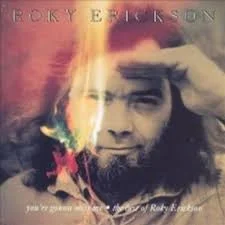Four Corners and my addiction to research
My third novel is released today!
It’s a bit of craziness involving conspiracies woven through time, secret libraries of lost information hidden in what appear to be derelict buildings in the desert, psychedelic 70s western films, the Wild Bunch, the ancestral Puebloans, and so much geology.
You can read about it and purchase it here.
But what I really want to talk about in this blog entry is the research. This blog entry could be subtitled: a map of a rabbit hole.
I like to research. I prefer it to writing. In fact I recently got so carried away researching a physicist character that I found myself enrolled in Calculus and Physics classes at the local community college… I’m not even entirely sure how that happened.
The research for Four Corners was an amazing process. I first had the spark of the idea of the book on a road trip through the southwest. We were driving through southern Utah I believe when I gazed at the mountain walls through my sleep deprived eyes and started hallucinating shapes in the lichen stained stone. (Don’t worry, I don’t do the driving on these road trips. I like to drink and my wife likes to drive, it’s a symbiotic relationship.) Between this trip and a follow up trip the following summer, I visited the locations that would appear in the book, and also got my first big dose of geology in the visitor centers at the parks.
The protagonist of Four Corners is a geologist. I often write academics as my point of view characters. Being married to a historian, it’s easy for me to assume that some of the day to day professorial work transcends field: anyone who is teaching must have moments where they don’t want to grade a stack of papers for instance. In order to write a geologist, I spent about two months researching geology, especially the geology of the four corners region. Much of this was reading: inner library loans, giant stacks of books, etc. Some of it involved quick internet searches: what sort of tools does a modern geologist use?
I spent more months researching the indigenous people of the area. The ancestral Puebloans, sometimes called Anasazi are a big part of the story. It’s possible that I overused David Robert’s In Search of the Old Ones, it was the most memorable though of the books I read on that topic. Though it mostly matched up with what I read elsewhere and with what was said by the rangers at Mesa Verde. I also focussed heavily on Hopi mythology. Much of this ended up getting cut, which was probably for the better. I think I had a moment that because I’d read so much I wanted to put it all into the book, which would have been a mistake and fortunately the editor knew better. Another problem was that I did much of this research long before the book ever saw an editor, and there were definitely moments where the editor would ask for clarification and I’d be like, “I read that in a stack of inner library loaned books over two years ago, er…”
My reading included some fiction. I reread Edward Abbey’s The Monkey Wrench Gang as well as Desert Solitaire, any excuse to read Edward Abbey.
Then there were all the historical topics. Reading history is easier for me. I have a mere Bachelor’s degree, but I think we had to read so much in my senior seminar class that it’s nothing for me to read hundreds of pages of history rapidly. So I found myself reading about Uranium Mining, the Wild Bunch (which I started with Butch and Sundance but decided that Ann Bassett was more interesting), the Pueblo Revolt, Mormon off shoots (wow there were a lot of them).
There’s a part in the book where the protagonists discover a lost personal diary of John Wesley Powell. In order to try and mimic Powell’s writing style, I read a couple of his books and his The Exploration of the Colorado River and Its Canyons several times over.
For some of the weird science in the book, I watched Sean Carroll’s Great Courses Lecture on the Arrow of Time, researched Hugh Everett, and read another pile of books particularly books from Max Tegmark particularly Our Mathematical Universe. I suspect Tegmark’s categorizing of different types of theoretical other universes is going to be useful for my writing for many projects to come.
I’m incredibly proud of the result of all this research. It’s important for me to remember that as I have to force myself to put a stop to the research phase of a yet another project. Research is fun, but for me it’s not the work part of a book.


